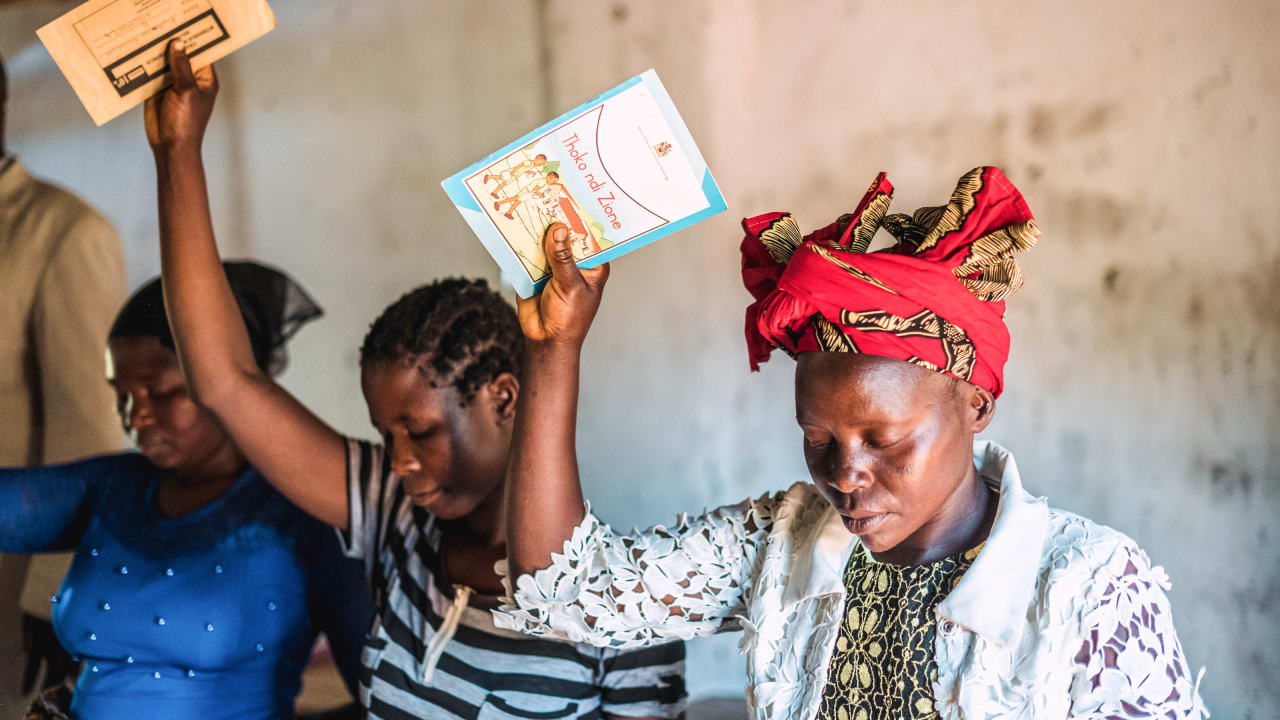Bad things may come into our lives from germs and accidents or from ‘the world, the flesh and the devil’. And so people try to protect themselves and their families – with blood sacrifices and rituals, with bleach and washing, with insurance and pensions, with ‘doing good’ to gain God’s favour, or with prayer and fasting. Even Christians often struggle to know which strategies to use to avoid bad things happening.
Read Matthew 15:10-20.
As Christians, we know that we have already been made ritually clean by the blood sacrifice of Jesus – this is why we do not need to make more sacrifices or follow rituals for purification. And Jesus has taught us clearly that it’s not outer dirt or cleanliness that matters to God, but the cleanness of our hearts.
- So what is the importance of hygiene?
Hygiene is about how we live on earth. This means firstly our relationship with the whole of creation, which we are to nurture (Genesis 2:15).
But more specifically it means our relationships with others in society – it’s part of that common-sense living that we read about in the book of Proverbs. So if we have come to understand that washing feet (John 13) or wounds (Luke 10:34; Acts 16) is good for our health and our relationships, we should do it out of respect for others.
If I eat with someone, I will wash my hands to respect him. If I sleep with my wife, I will wash my body to respect her. If I have a sickness or am living with HIV, I will avoid giving it to others. In all of these cases, it is not enough to have faith in God to protect me and others, if I do not have love to care for them myself.
This is the ‘golden rule’: ‘in everything, do to others what you would have them do to you, for this sums up the Law and the Prophets’ (Matthew 7:12).
And of course it is common sense to look after even just my own body. ‘After all, no one ever hated their own body, but they feed and care for their body, just as Christ does the church’ (Ephesians 5:29).
We all want to protect our friends, family and ourselves from bad things happening to us. Just as the Israelites were told to build a wall around the edge of the flat roof of their houses to prevent accidents (Deuteronomy 22:8), and we all lock our houses to prevent theft, so we need to wash our hands to prevent disease. By resisting bad things happening in this way, we honour others and so also honour God himself, the source of all good.
- Name five ways you can show love and respect for others with good hygiene.
A story about hygiene
Some years ago in northern Ghana, 10-year-old Kuungkaara and his friends were hunting rats in the bush. He put his hand in a hole and was bitten. Thinking it was a snake bite, his family sacrificed chickens to their local gods and wrapped the hand and arm with wet leaves. A week later, when I met him, his hand was black, and the gangrene had almost reached his shoulder. His arm had to be amputated, though the doctor believed it had in fact probably been just a rat bite – it was the dirty leaves that had caused the infection. Now Kuungkaara eats with his left hand, so no one will share a bowl with him.
- Why did Kuungkaara’s family do what they did? How can we challenge harmful traditions in our communities with Jesus’ teaching and healthy practices?
Andy Warren-Rothlin is a Bible Translation Consultant with United Bible Societies and the Professor of Hebrew at the Theological College of Northern Nigeria.
Websites: www.unitedbiblesocieties.org, www.tcnn.org









